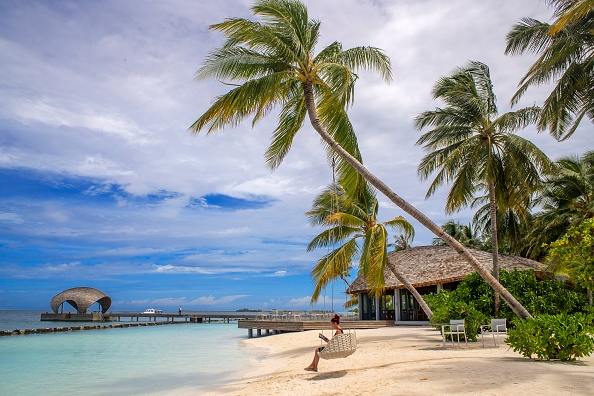The 2022 World Cup kicks off on November 20, taking place in Qatar. The Middle Eastern country seized the rights of the organization on December 2, 2010, and since then the controversies have been entangled in a story tainted by corruption. In 2013, the notorious Qatargate case broke outwhen the French magazine France Football published an investigative report on the irregularities committed by the International Federation of Association Football, FIFA, in choosing the emirate as host of the tournament.

To this was added, in 2015 the so-called FIFA corruption case, an investigation which in May of that year led to the indictment of 14 people by the FBI and other Criminal Investigation Divisions, which investigate crimes involving fraud, extortion, and money laundering. Arrests have occurred in countries including the United States, Australia, Colombia, Costa Rica, Germany and Switzerland, with several top FIFA officials charged with corruption. Such was the scandal that led to the resignation of its president, Joseph Blatter. The elections of Russia in 2018 and Qatar in 2022 are believed to have been vote buying and influence trading.
Given the obvious cases of corruption, many of which already have convictions, The look of cinema and television on the celebration of the World Cup in the emirate of Qatar was not alien to the reality of a country where human rights are violated; in which penal sanctions such as flogging and stoning are foreseen; where the laws are governed by the Sharia, which implies that homosexual relations are prohibited and can lead to prison sentences (even punishable by the death penalty depending on the case), in addition to the fact that women are disenfranchised when they are subjected to a male guardianship system, with which women are bound to a male guardian for life, be it father, brother, grandfather or husband.

‘The pros and cons of FIFA’ and ‘Qatar: The World Cup at your feet’, FIFA corruption exposed
Added to this is the absence of freedom of expression and of the press, Qatar’s penal code makes it a crime to criticize the Emir, the country’s highest authority, for having offended the flag or Islam, with a three-year prison sentence If any of these actions are dared, they include spreading “fake news” on the internet, although this is left to the interpretation of Qatar’s judicial system. Faced with such a reality, voices are emerging denouncing that an event of such magnitude as the World Cup takes place under a real dictatorship.
Therefore tap to highlight recent titles like ‘The ins and outs of FIFA’ and ‘Qatar: The World Cup at your foot’, both already available for streaming. The first is a miniseries produced for Netflix directed by Daniel Gordon and which explores the corruption scandal that arose in 2015 and which shows how FIFA, under Blatter, has become a real criminal organization. Along the same lines, albeit completely focused on the election of the Asian country, is ‘Qatar: The World Cup at your foot’, a Spanish production (La Media Inglesa) and available for free on YouTube.

Directed by Juan Corellano, this documentary miniseries focuses on how football has become a real game of political, social, economic and diplomatic power and how the emirate of Qatar has known how to see it for years and how it managed to buy top FIFA officials to win the World Cup and thus recycle its international image. Both series focus on the corruption that took place after the headquarters election, but there are other titles that wanted to explore the reality and routine that exists in Qatari society.
The reality of foreign workers in ‘The hidden face of the World Cup’ and ‘Trapped in Qatar’
It is the case of ‘The hidden face of the World Cup’, feature documentary film directed by Adam Sobel in 2017 and available on Filmin. The director did central research work on the millions of immigrants who went to work in the emirate to build stadiums for the World Cup, most of them having to work in extreme conditions. The tape explores the reality of different workers through their testimonies. According to According to an investigation by the British newspaper The Guardian, more than 6,500 workers have died as a result of subhuman working conditions in the country.

Although Sobel’s film shows the illusions of several workers, many of them footballers who went to the construction site in search of an opportunity. It also reflects how workers were overcrowded in the fields in unsanitary conditions and how they lacked protection for possible work accidents. or faced with the extreme temperatures of a country that forced the World Cup to take place at the end of autumn and not in the traditional summer, precisely because of the inhuman heat of the summer season. A careful work more journalistic than cinematographic that gives voice and face to those anonymous workers of countries like Ghana, Senegal, Nepal or Sri Lanka.
Another title that explored the inhumane conditions of foreign workers in the Middle Eastern country was ‘Trapped in Qatar’, short documentary produced by the German public television WDR. In May 2019, journalist and filmmaker Benjamin Best clandestinely traveled to Qatar to covertly record the conditions of Nepalese workers who were in Doha for stadium construction. The Nepalese government admitted to Best that 1,426 Nepalese workers were killed in Qatar between 2009 and 2019. The short collects the testimonies of 125 workers in the Asian country, who for eight months did not receive a salary and had their passports confiscated, which prevented them from leaving the emirate.

The reality of intermarriage in ‘Linda & Ali’
But not everything about human rights vulnerability in Qatar is related to the World Cup. Although the film does not have a critical look, in 2006, Belgian director Lut Vandekeybus directed “Linda & Ali: Two World Within Four Walls”, in which an American woman of Catholic origins embraced Shiite Islam by marrying a Qatari and how she decided to live in the emirate, adapting to the strict rules incumbent on women. Although the documentary didn’t intentionally do this, He revealed how Linda, despite having been married to Ali for more than 20 years, has strong cultural frictions with her husband regarding the aspirations of their daughters.

“Bekasr taa (Breaking the Chains)” focuses on women’s rights, a short film produced in 2019 that exposes the reality of women in the world, focusing above all on Muslim countries, including Qatar. The short tackles various topics such as gender-based violence, postpartum depression, forced marriage of girls or the prison sentences women face for breaking the rules. It is a production of Katara Studios. On the other hand, maybe the brightest look is that of the short ‘Caravan’, directed by Suzannah Mirghani in 2006 which, in four minutes, takes a traditional portrait of the country’s citizens through a traffic jam on the highway.
A short approach which, on the other hand, we recall that all productions that have addressed human rights in Qatar are documentary in naturewhich implies that few studies have wanted to venture a fictionalized account of a reality which, due to the World Cup, has become evident internationally.
Source: E Cartelera
Bernice Bonaparte is an author and entertainment journalist who writes for The Fashion Vibes. With a passion for pop culture and a talent for staying up-to-date on the latest entertainment news, Bernice has become a trusted source for information on the entertainment industry.




